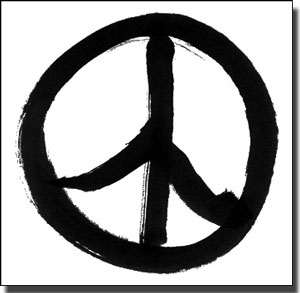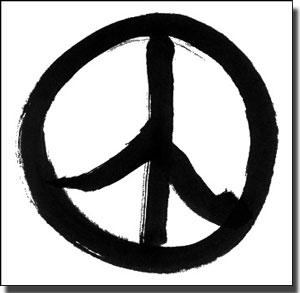 “Sticks and stones may break my bones, but I’ll never forget what you said.”
“Sticks and stones may break my bones, but I’ll never forget what you said.”
That’s the truer version of the playground retort bullied children are supposed to use when maliciously teased. Although the original – “sticks and stones may break my bones, but words will never hurt me” – can be quickly rolled off the tongue, many of us do remember and internalize the harsh words we hear from those around us.
What I’m trying to say is this: Words matter.
The words we use for ourselves, the words we use for each other, the way we name ourselves, the boxes we put people in, the way we name God . . . it all matters.
Words matter because our words reveal our values. They reveal how we really feel about the world around us, and what and who we aspire to be.
That’s why Mary Daly wrote, “If God is male, then the male is God.”
This is why one says “people who live with disabilities” rather than “handicapped people.”
The way we talk and write and name ourselves and those around us says something about the narrowness, or complexity of love and life.
I appreciate the way liberationists have paid attention to language. I like the way feminists, poets and health advocates (to name a few) remind us about the power of our words.
This becomes particularly relevant to me as one who lives with a depressive condition, and as one who is not a fan of war and the military industrial complex.
In 1999, my friend and fellow Vanderbilt University Divinity School graduate, Carol Orsborn, co-wrote a book about her experience with breast cancer. Carol and three other women who had been diagnosed with breast cancer riled against the way that the medical industry and wider society referred to living with breast cancer in the metaphorical language of war. Carol, Linda Quigley, Karen Stroup and Susan Kuner wrote about this in their book, Speak the Language of Healing: Living with Breast Cancer.
Former surgeon general of the United States, Jocelyn Elders wrote about their book using these words:
“These four women . . . faced the terrifying diagnosis of breast cancer and courageously refused to go to war against their own bodies. For them, the disease was not an enemy to be vanquished but a part of themselves to explore, understand and accept.”
I like how Jocelyn Elders summarizes Carol and her friends:
refusing to go to war against their own bodies
This resonates with me and my faithful living with a depressive condition. It’s easy for me to be frustrated and downright mad at the force within me that triggers so easily with stress, weather and the vicissitudes of life. It’s easy to think of battling depression. The medication, the therapy, exercise, meditation and numerous other techniques become part of my healthy warrior arsenal that will “conquer” or “survive” depression.
I remember the day my therapist asked me to stop thinking of depression as an enemy. I cut my eyes at her and scowled. Are you joking? Something inside of me can take me out, and I’m not supposed to fight it?
Author and teacher Parker J. Palmer writes of this cogently in his book Let Your Life Speak. He recalls a therapist saying “You seem to look on depression as the hand of the enemy trying to crush you; do you think you could see it instead as a friend pressing you down onto ground on which it is safe to stand?”
Friend?
Could a depressive condition be a friend?
Could it be a part of myself to explore, understand and accept?
It’s taken me years to stretch my original understanding of depression to one that refuses to go to war against my own body.
Like my friend Carol and her co-authors, deciding to explore, understand and accept in a larger (more powerful and monied) linguistic world that prefer images of war, I find myself in a minority position. I have to renew my commitment to peaceful healing language again and again.
This came to me recently in yoga class.
I went to yoga because I needed something to help me feel better. I was pulling out the yoga tool from my sheath of stay-healthy warrior implements. Of course, yoga doesn’t make me feel like a survivor. Instead, I am reminded of all the ways I need to improve my balance and muscle strength. I always fall in a heap on the floor trying some pose I think I can do.
But doing yoga reminds me of key insights to live by:
- Breathe
- Stretch
- Balance
 These aren’t ammunition to wrestle and subdue what is within me. These reminders are ways of slowing down and connecting with what is inside of me. These become principles that help me heal, rather than fight.
These aren’t ammunition to wrestle and subdue what is within me. These reminders are ways of slowing down and connecting with what is inside of me. These become principles that help me heal, rather than fight.
I’m glad that there is a religious tradition (in this case, Hinduism) – willing to share its practices with those of us outside that tradition – that emphasizes the connection between the body, soul and purpose.
While Christian traditions have spiritual disciplines and practices, my religious upbringing inherited the most dualistic body-depriving aspects of Christianity. I have to look much harder at the Bible and Christian history to find remnants of body-affirming practices in Christianity.
When I take time to breathe, stretch and balance, I become stronger. Not only does my body become stronger, but I become stronger in life with a depressive condition.
When I feel strong, I save the clinical diagnosis for clinicians who use it as shorthand to guide them in helping me be healthy. I don’t think of myself as ill or disordered (as dominant language in the field might indicate). I think of myself as “Monica” who lives with a “condition.”
When I feel strong, I reserve the word “crazy” for my own unrealistic expectations that need to be discarded. I don’t use it to refer to myself, my friends or strangers I don’t know.
I’m not calling depression my friend. I usually just salute the sun every morning. But these are very small steps as I refuse to go to war against myself.





For some reason, I like using the word “crazy” to refer to myself-it's like if I say and acknowledge it, then it loses some of its stigmatizing power. I do like your idea of not using warlike language to describe one's self. I'm at the stage of my recovery where I acknowledge my craziness everyday and deal with it like it's a slightly annoying companion, rather than being at war. I'm pretty much a pacifist and don't like the idea of being at war with anyone, especially myself.